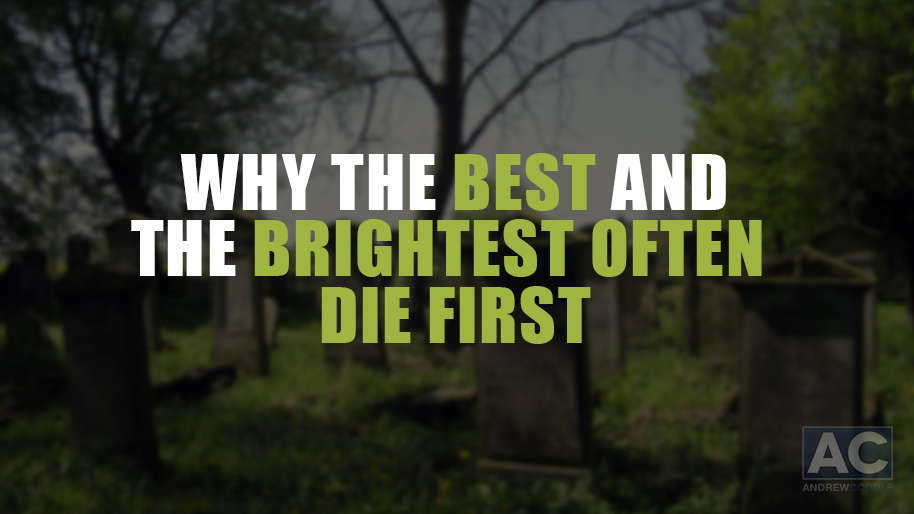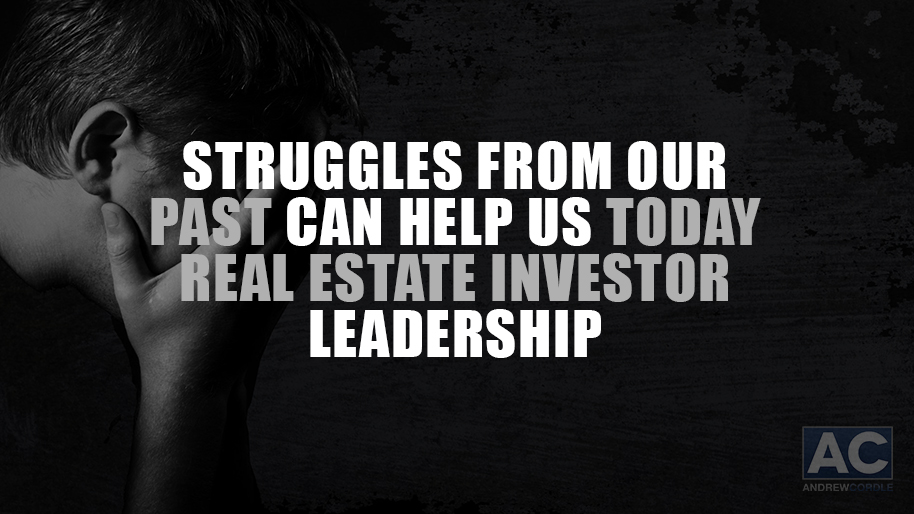
Laurence Gonzales tells the story of Captain James Gabba, an Army Ranger. He drowned when he was taking down the upper Gauley river in West Virginia in his raft. He hit a rock and it knocked him out of the raft. The commercial guide was also knocked out of the raft and tried to rescue Gabba. He playfully pushed him away and laughed. Perhaps he was thinking that his Army Ranger training was many times more dangerous and stressful than this minor upset. Consequently, Gabba floated downstream into a massive rock blocking the river flow, and was pulled under by the power of the current and drowned. A typical civilian with no advanced training would have welcomed the guide’s rescue attempt and most probably lived to tell quite a story. Captain Gabba perhaps saw the guide’s rescue attempt as unnecessary for such a well-trained “stud” as he. His family attended his funeral and had only a tragic story to tell. Ranger training is some of the most rigorous and demanding that the Army provides. Successfully completing the grueling 8-week course can give the soldiers tremendous confidence and know-how in survival skills under extreme conditions. Yet, in Ranger training, having to be rescued equates to failure. Self-sufficiency is rewarded. Rangers lead the way; they don’t need to be rescued! Now, all things considered, physical and mental training should never be minimized; however, some of the very training in business schools, universities and military programs, while teaching extremely valuable information and technique, also insidiously teach a confidence that can be most counterproductive in survival situations. An MBA does not teach one to cope with a shocking divorce. When you are alone in a business failure, the degrees or awards hanging on your wall do not provide any comfort or remedy. In fact, all that training seems to mock you in your failure. How could a guy/gal like you with all that good training fail so miserably or be so confused in life? Let’s examine more carefully this seeming paradox in survival: 1. Survival requires both faith and works. By faith, I’m referring to that inner confidence that keeps us believing we will survive and ultimately be successful. And when we stop believing that we can, we don’t. And when we don’t, we die. But faith is more than believing we will survive; faith should also motivate us to do our part to rescue ourselves. Believing that someone will rescue us is often merely a false hope that will bring depression when it doesn’t happen. Whereas, faith can give us the confidence to look for ways we can hike out of our woods. Faith sees itself surviving, so it does those things that a survivor would do. 2. Survival ultimately depends on outside help. Juliane Koepcke – the 17 year-old girl who hiked from a plane...
Read More »
When we’re teaching investors how to flip a house, the importance of the kitchen rehab cannot be stressed enough. Kitchens sell homes! In this video, Andrew shows you how to flip a house and rehab that kitchen so the end result is a top-notch, eye-catching product! Our video library helps any investor learn how to flip a house. www.andrewcordle.com ...
Read More »

During today’s flipping houses – branding portion of our journey, I’d like to briefly discuss how we promote our brand even further when flipping houses, by using small AnnLeeInteriors.com pop-up postcards. So far, we have covered a broad range of subjects: – overview of Ann Lee Interiors – the importance of photography – the proper way to write the description of the “house” – front yard signs – custom keys As we tour the house, you’ll notice that our brand is subtly all over the place. Everywhere you look, there’s something promoting AnnLeeInteriors.com. So let’s talk about the Ann Lee Interiors “pop-up” branding postcards. We have two sizes, 4×6 and a smaller one about the size of a business card. On the back of the smaller version, there are home-related quotes printed on one side. I have included images of these cards for your convenience. You may think it sounds silly to be placing something like simple little pop-up cards throughout the house. Maybe you think it’s overkill, but I can assure you, it works! The idea behind this concept is that from the time the buyer arrives until the time they leave, we are sending out “soft” reminders throughout the house that this is a custom house from AnnLeeInteriors.com. As I’ve mentioned in my other AnnLee articles, our goal is for the buyer to associate the positive, feel-good feelings they had in the house with our brand, AnnLeeInteriors.com. It’s that simple. We place around 10-12 pop-up postcards all throughout the house. Some good areas to place them are: Window ledges Fireplace mantle Table-tops End-tables Countertops Bathroom sink counter Back of the toilet Top of the oven There’s a multitude of areas to place these cards. Remember, these are used as soft, subtle reminders of our brand. We’re reinforcing our brand and the positive feelings associated with it by a “whisper” approach rather than a “screaming” approach! The bottom line is this: if your potential buyer enjoys the “experience,” in most cases, they’ll be willing to pay more for your product. It works for Starbucks so take these simple lessons, apply them to your business model for branding, and the rest will take care of itself! ...
Read More »

Leadership in real estate and for investors is paramount. Often, when flipping houses or learning how to make money in real estate one finds themselves in the middle of a struggle. One must learn to use the lessons of struggle in our past and apply it to our business today. Learning from past struggles will help every investor be a better leader and make more money flipping houses! Mark Morey operates a survival training school called Vermont Wilderness Survival School in Brattleboro, Vermont. His focus is teaching children ancient native skills of survival. Author Laurence Gonzales writes, “Morey is one of the few people I’ve ever met who would survive being dropped naked into the woods”. Morey makes an interesting observation about children. “Inner-city children did better in survival training than ones from the suburbs, because the suburban children have no predators“. Inner-city kids learn the secret routes, the shortcuts that keep them safe from the tough crowd. Our challenges in life are often bigger than we are, but if we buckle and run from every large problem, we’ll be running the rest of our lives. Sometimes you gotta man-up and face the challenge. Survival doesn’t depend on the size of your resources; it depends on the size of your heart! Too often, a mature adult finds himself in either a treacherous divorce that reduces him to zero assets or in a financial loss that burdens him with a mountain of debt. Maybe some may find themselves imprisoned as a fall guy for the “untouchable bosses” who deflected their wrong doing. Or even as a convicted criminal for a genuine mistake in judgment. Unfortunately, survival is not well-taught in our homes and schools. We have grown up soft, spoiled and with the feelings of entitlement. We consider ourselves to be “roughing it” if the television doesn’t operate properly during the big game. If our air conditioning unit fails on a hot humid night. Even if our power goes out for more than a few hours from a major storm. We have not been well-schooled in the practice of surviving or of enduring hardship. Regardless of how technologically advanced we become or how secure and safe we feel with insurance and home alarms, we have yet to find a way to avoid the emotional jungles of loss, death, pain, and rejection. GPS, compasses, MRE’s (meals ready to eat), modern clothing and footwear. All are super to have outdoors. Yet what does one do when the back pack with all the techno-gizmos and food falls over the ledge. If it’s carried away downstream when the canoe overturns? We don’t call them accidents for nothing. They are not planned, they just happen. The hand loses its grip or the foot slips on a ledge. Marriages implode, markets collapse, the housing industry plummets and your loan is called by...
Read More »











